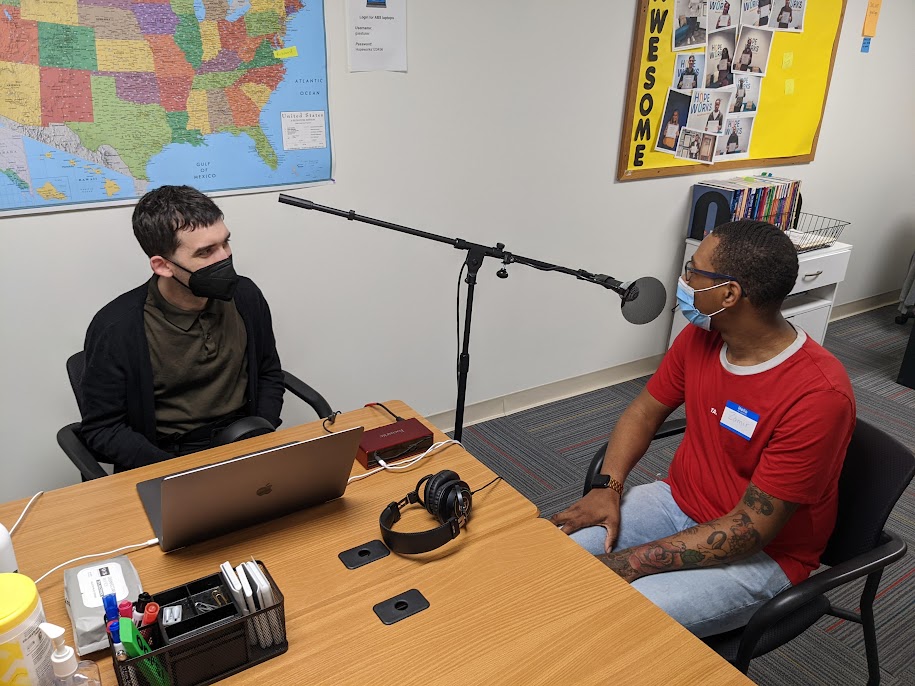When it comes to the digital divide, one very important lesson I learned from a young age is that access to technology, and information that comes with it, is currency.
It is how you not only advance in education, the professional world and society, but also how you maintain solid footing in them in the 21st century. I learned this lesson from personal experience.
Born in Camden, New Jersey, I spent part of my childhood in the area and the other part in Puerto Rico. In the latter, my family was poor and access to technology was strained. For years, my relationship with tech was limited to the TV that my siblings, grandparents and I shared. Slowly, my exposure grew — there was a PlayStation 2, some internet access and then a shared family computer — and with it, the world I knew grew as well.
The media, entertainment and information we then had access to through the devices we used to get on the internet was our form of getting to see what was out there, beyond the home we lived in and the school we attended. Suddenly, I was part of a huge network that is used across the globe, with voices from so many other minds and access to countless thoughts and ideas. This brighter and more colorful world inspired me to fill the internet with my own ideas and explore my own imagination, which, to this day, I find incredibly impactful and rewarding.
To me, the power of the internet — and what it could hold and support — felt limitless. Therefore, the strained access to it, felt like the ultimate limitation. And, this became extremely evident when it came to my education.
At 22 years old, I am proud of how far I have come and the direction I am in, but I also refuse to forget where I came from.
Even with more technology in my home, I didn’t always have access to the internet in Puerto Rico. And, as a non-Spanish speaker, I was struggling to keep up in an education system that held back those beyond that language barrier. To keep up, I went to great lengths to overcome the struggle that came with completing daily homework assignments, only to be held back a year in the end.
Having to repeat that year put me in a state of reflection. From that point on, I knew I had to make important decisions for myself to advance my education. This came down to making the most of, and looking for ways to expand, my limited access to the internet. And, with the support of my friends and community, I was able complete the year and graduate with a high school diploma.
Beyond my formal education, the internet also became my most trusted (and, quite frankly, only) resource when it came to my mental health. For a long time, I felt like I had no one to talk to — beaten down by circumstances, I had lost hope. But, once I was online, I was able to gain access to content from creators that made me feel less alone. I now had a community to talk to. Sometimes it was hearing other people talk about their struggles and getting through those times when they also lacked resources, support and access to information to advance themselves.
At 22 years old, I am proud of how far I have come and the direction I am in, but I also refuse to forget where I came from. Not only is it a part of who I am, but so many young people are facing the same struggles I did back then, today.
While life-defining to some, the digital divide remains invisible to many. If you have reliable access to the internet, it becomes easy to forget that others do not — and what a life without it would be like in 2022. Hopeworks, where I serve as a GIS team leader, recently tapped into this awareness gap with our Spring Hackathon. In partnership with Mural Arts and EPAM, this year’s version of the annual event focused on the digital divide. On that day, volunteers developed storyboards and captured content to produce an augmented and virtual reality experience. This included creating an online repository for individuals in the region to share experiences of the digital divide and workshop ideas on how to solve it.
When I was young, what really drew me into the internet was the storytelling. It began with Pokémon – this wonderful and imaginative world piqued my curiosity. What other stories, fiction and nonfiction, were out there? How were other minds using this resource to impact the world? Participating in the hackathon allowed me to tap back into this initial passion and share my story with the digital divide. Now, it’s time for all of us to start listening.

Storytelling at Hopeworks’ spring 2022 hackathon on the digital divide. (Courtesy photo)
Join the conversation!
Find news, events, jobs and people who share your interests on Technical.ly's open community Slack

Philly daily roundup: Student-made college cost app; Central High is robotics world champ; Internet subsidy expiration looms

Philly daily roundup: Earth Day glossary; Gen AI's energy cost; Biotech incubator in Horsham

Philly daily roundup: Women's health startup wins pitch; $204M for internet access; 'GamingWalls' for sports venues


